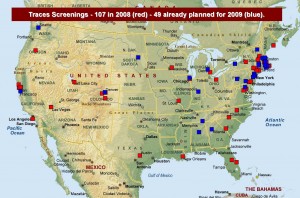I have very mixed feelings about the designation of February as “Black History Month,” despite the opportunities it presents for those of us who regularly make public appearances to discuss our nation’s history of slavery and discrimination and its impact on our society today.
I always appreciate the opportunity to speak about the story of the DeWolf family and the legacy of our nation’s history of slavery and discrimination. Spreading the message of this blog (and of Traces of the Trade) is important to me, and Black History Month programs generally offer a positive context in which to bring this message to the middle school, high school, and college students who are usually my favorite audiences.
In short, I strongly support efforts to teach our children the full history of the United States, including the role of black Americans and such related topics as slavery and discrimination, and to encourage children to explore the meaning of this history for our society today.
However, I tend to side with those who believe that “Black History Month” usually results in limited exposure to a speaker or two, or to a brief unit on isolated topics in black history, rather than to a comprehensive curriculum about the African-American experience. What I find particularly damaging, moreover, is the pigeon-holing of “black history” into a single month and its treatment as a specialized topic, rather than as an integral part of American history.
As I often tell audiences, especially of younger people, the history of American slavery and discrimination isn’t black history, and it can’t be considered apart from the rest of the American story.
In other words, this is our shared history.
Click here to read the rest of this entry
